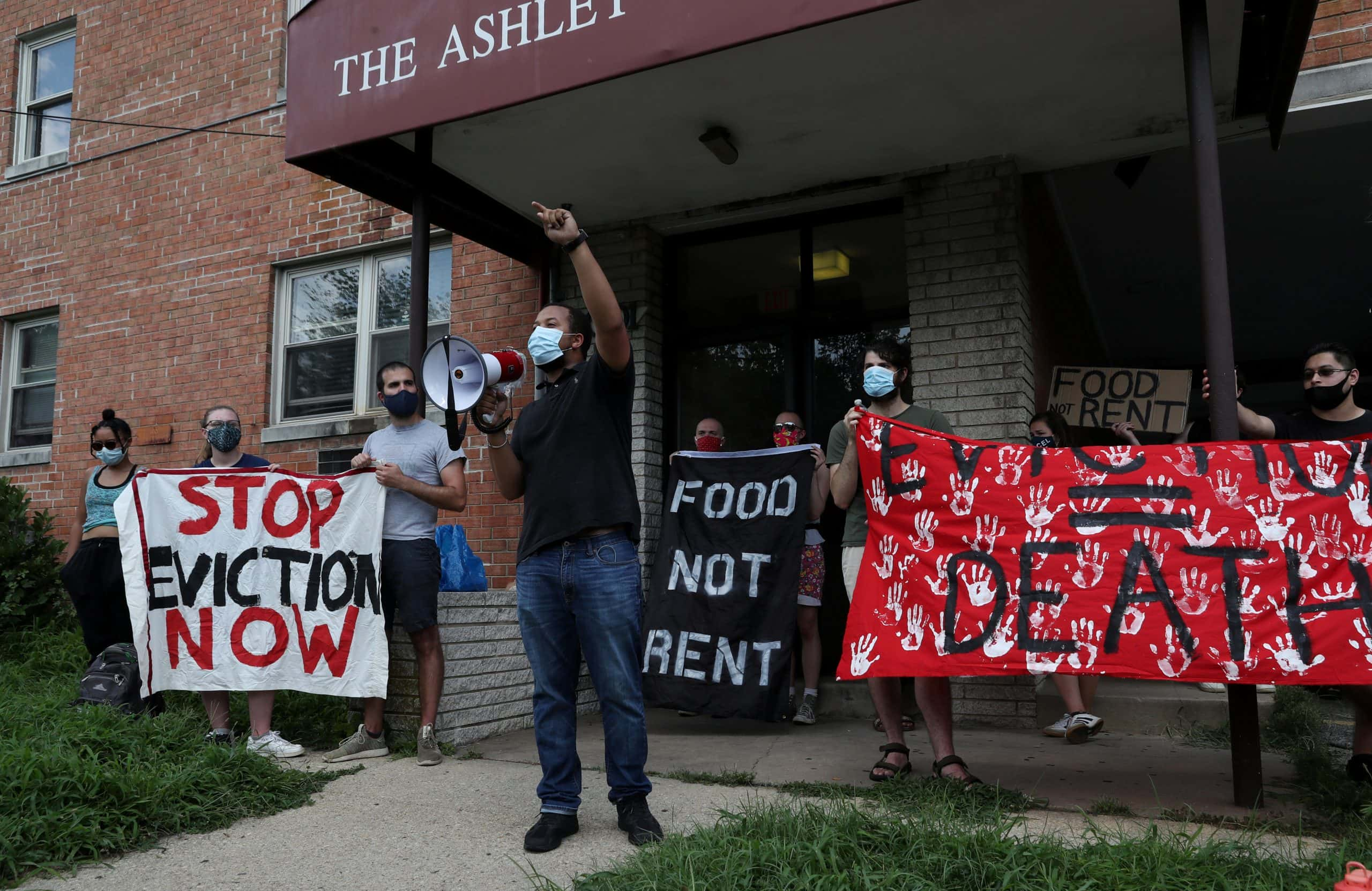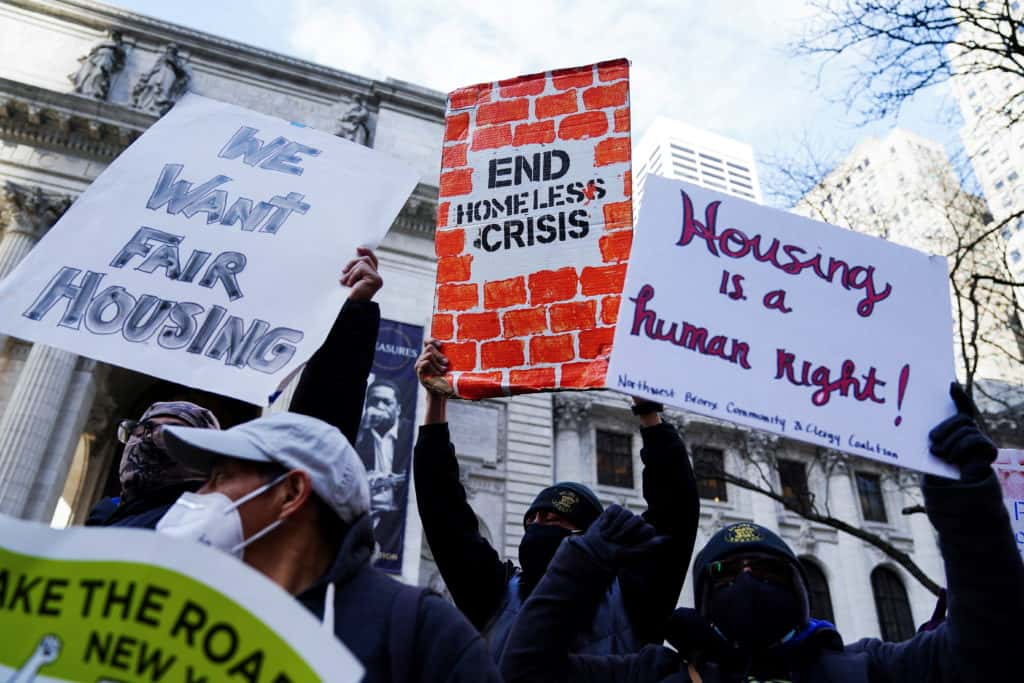The alarming rise in eviction filings by landlords is fueled by escalating rents and a persistent shortage of affordable housing.

Evictions have surged across the United States as pandemic protections come to an end, leaving millions of vulnerable tenants facing homelessness
Many low-income tenants no longer have access to pandemic resources that had helped keep them housed, and their struggles are exacerbated by difficulties finding stable employment and wage stagnation.
One such case involves 70-year-old Dana Williams and his 25-year-old daughter, De’mai Williams, who faced eviction from their two-bedroom apartment in Atlanta. Despite Dana’s serious health issues, the judge was bound by state law to enforce the eviction due to their outstanding balance of $8,348 in unpaid rent and fees. Since then, the Williams family has been living in a run-down Atlanta hotel room without basic amenities such as a refrigerator or microwave.
The eviction crisis is not limited to Atlanta. Cities like Houston, Minneapolis/St. Paul, and Nashville have seen eviction filings increase significantly, surpassing pre-pandemic averages. According to the Eviction Lab, which monitors eviction filings in several cities and states, landlords file approximately 3.6 million eviction cases annually.
Rental prices nationwide have risen by about 5% compared to the previous year and a staggering 30.5% since 2019, leaving displaced tenants with limited options
The National Low Income Housing Coalition estimates a nationwide shortfall of 7.3 million affordable housing units. During the pandemic, safety nets such as eviction moratoriums and emergency rental assistance provided temporary relief to vulnerable tenants. However, these measures have largely expired, and the $46.5 billion allocated for emergency rental assistance has been depleted. Calls for additional resources have failed to gain traction in Congress.
Housing courts are once again overwhelmed with eviction cases, affecting individuals like 79-year-old Maria Jackson, a former massage therapist in Las Vegas. She lost her business during the pandemic-induced shutdown and subsequently fell behind on her monthly rent. Jackson’s story highlights the devastating impact of eviction on individuals who have worked tirelessly throughout their lives.




